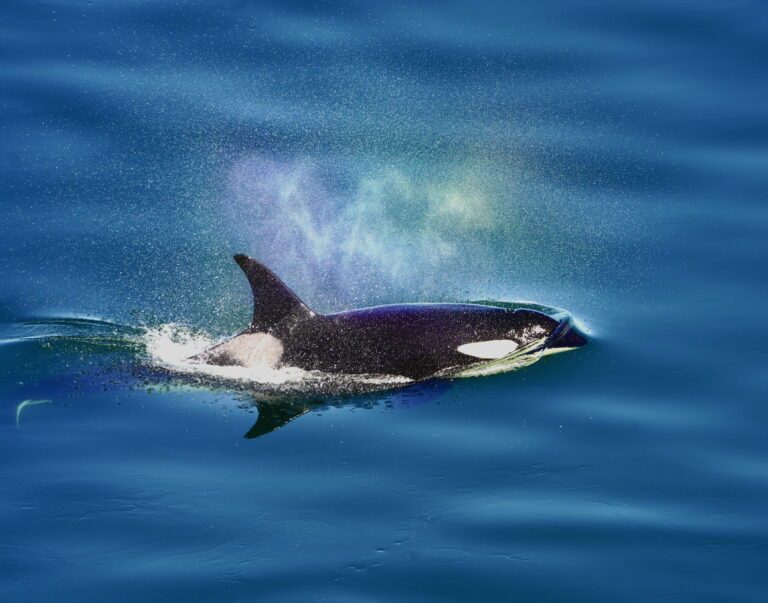Explore the role of machine learning and AI in cetacean research.
Dr. Kait Palmer and Dr. Peter Thompson will cover AI fundamentals and tools originally developed for human data that have been adapted to study whales, noting both successes and challenges. They will touch on recent headlines about animal communication and highlight the work of the HALLO project in our local waters, which uses AI to help protect endangered southern resident Orcas.
HALLO (Humans and Algorithms Listening to Orcas) is a multidisciplinary collective comprising bioacousticians, ocean researchers, citizen scientists, and computer scientists with a shared mission of developing advanced artificial intelligence systems to support the environmental conservation of endangered marine mammals. Their first goal is to develop a whale forecasting system, primarily focused on aiding the preservation of the endangered Southern Resident Killer Whale (SRKW) population. This system is designed to alert nearby ships of whale presence in the vicinity, to prevent potentially fatal ship strikes. While our immediate focus is on the SRKWs, this system also benefits other whale species inhabiting the Salish Sea in the Pacific Northwest. Beyond its immediate protective function, this system will also contribute valuable data to inform and enhance conservation measures.
Orca photo by Lauren Loturnus
Bios:
Kait Palmer is a data scientist with a foundation in bioacoustics. She is an Associate Researcher at Simon Fraser University with the HALLO Project. Her focus is to translate raw data into actionable, impactful solutions.
Peter Thompson is a Postdoctoral Fellow at Simon Fraser University. Peter is interested in identifying the environmental and anthropogenic drivers of movement and space use for southern resident killer whales in the Salish Sea.
Our Tech Talks introduce you to exciting new technologies and how they affect your life. No experience is necessary; curiosity and enthusiasm are welcome!

